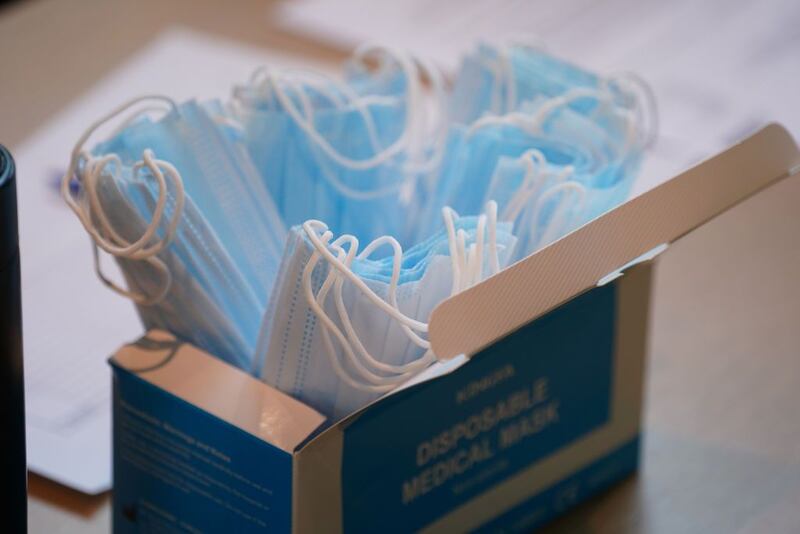ATLANTA — Little pieces of plastic are in our drinking water, food and air we breathe. Now personal protective equipment like masks and gloves washing up in metro Atlanta rivers could be a tipping point for global plastic pollution, according to researchers.
Trash in parking lots or tossed out of car windows ends up in metro Atlanta creeks and rivers after a rainstorm. Jordan Yu with the Chattahoochee Riverkeeper visits eight trash traps across north Georgia to clean up that litter after a storm.
“You’re not just getting rid of something. They’re not getting it out of sight. It actually will end up in someone else’s backyard and someone else’s lake,” Yu said.
In metro Atlanta, that trash finds its way to the Chattahoochee River. It’s a big concern to riverkeeper Jason Ulset because he said the “hooch provides drinking water for 5 million people.”
But this year, he’s noticed a change in what’s washing up.
“That’s PPE, the gloves, the masks,” Ulset explained. “Actually, these little bottles of hand sanitizer that when they get empty, people just throwing them in the parking lot.”
It’s not just a metro Atlanta problem. What the trash traps miss goes downstream to the Gulf of Mexico.
TRENDING STORIES:
- Grand jury clears officer in deadly shooting of 17-year-old Cobb County man
- Gov. Kemp says state is working to finalize next phase of COVID-19 vaccinations
- Channel 2 gets exclusive look at new massive COVID-19 vaccine site set up by state
“In our rush to create these products this year, it has been a grab whatever you can and use existing technologies and materials. Turns out that those do have very long lifetimes,” said Kim Cobb, a Georgia Tech professor, who studies oceans and climate.
Cobb said some studies suggest there will be more plastic than fish in our oceans by 2050.
“The fact that these kinds of influxes are headed the way of these ecosystems that are already so stressed by existing failures in our handling of plastics globally, really, could be the nail in the coffin,” Cobb said.
Another concern is that PPE’s protective durability makes it hard to recycle.
“I didn’t even know what PPE was this time last year, and I think most people probably didn’t either, and now it’s a household name,” said Rubicon Chief Sustainability Officer David Rachelson.
Atlanta-based Rubicon creates recycling and sustainable solutions for businesses. “A plastic bags or chip wrapper has seven different plastic layers approximately in there, and it’s hard to break those down into their individual plastic for recyclability. Similarly, with the PPE plastic out there,” Rachelson said.
When left outside, thin plastic exposed to the sun, water and wind break apart, but it doesn’t go away.
“One of the things that we’re learning in the past few years is about something called microplastics,” Ulset said. “It’s breaking down into little tiny pieces of plastic that’s entering our ecosystem being eaten by fish and actually entering our water supply.”
Scientists are studying the impact of microplastic on our bodies, but research suggests chemicals found in some plastics can be harmful. BPA can impact fertility, as well as breast and prostate cancers. Styrene is linked to leukemia and lymphoma, according to the National Institutes of Health.
Cobb said it’s more than an eyesore. Rather, it’s a health impact we’ll fix for generations to come. “That’s kind of a sobering reality check for how far we have to go and the important choices we will make.”
Cox Media Group





